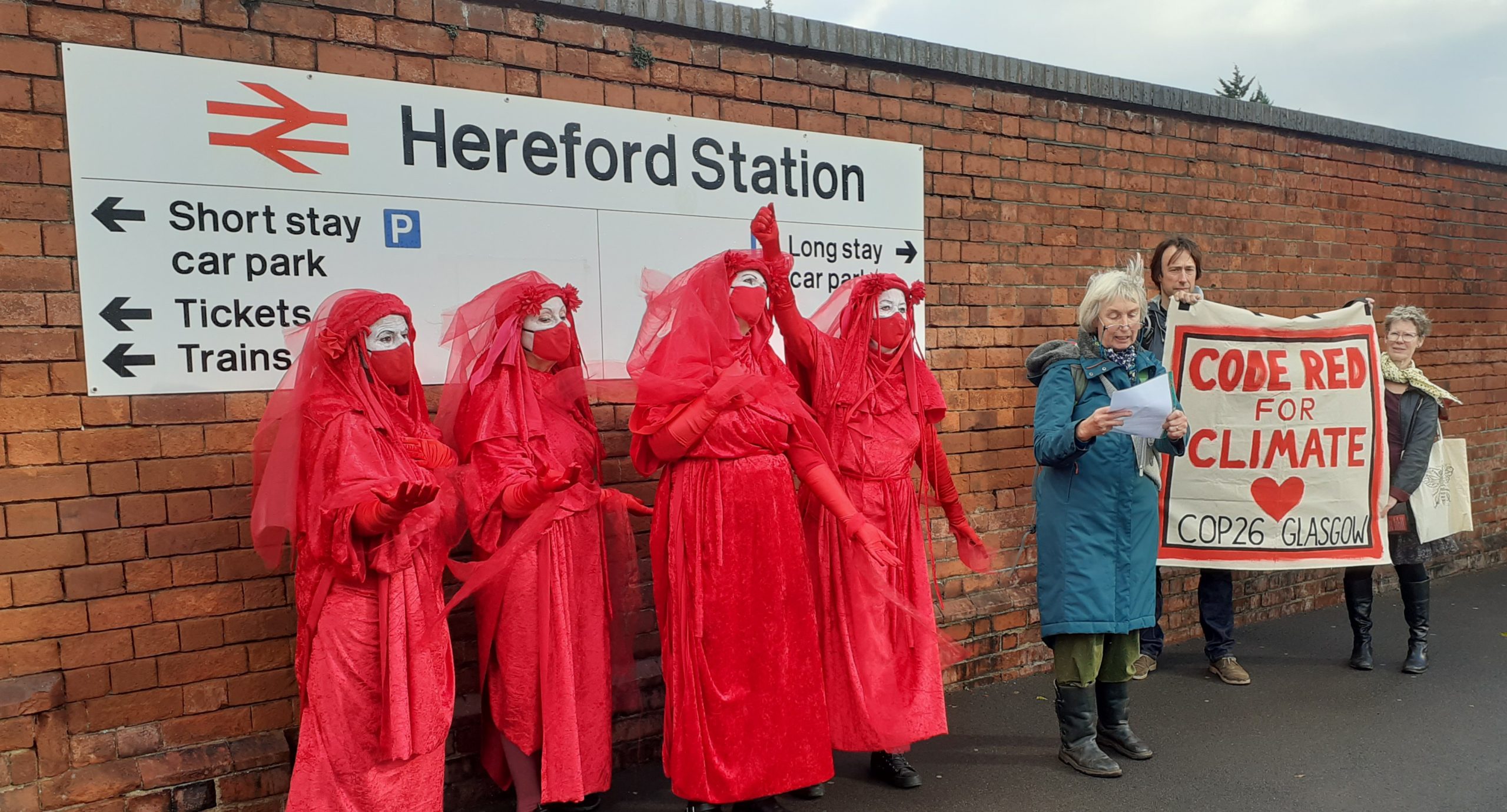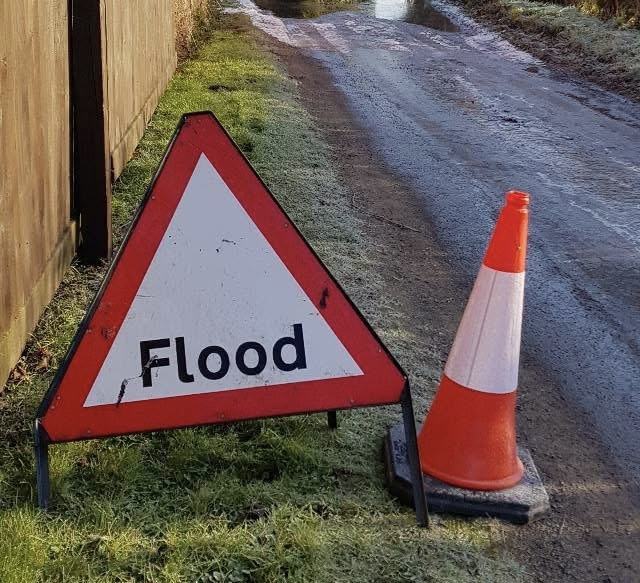On the 8th of March 2019 activists and campaigners, including many young people of Herefordshire, put pressure on elected politicians and marched on the Shire Hall demanding the council declare a climate emergency and act on climate and ecological breakdown.
Ellie Chowns, former green MEP for the West Midlands, a lecturer in international development and the cabinet portfolio holder for environment and economy and skills forHerefordshire Council, told a meeting of Friends of the Earth that moment was pivotal in Herefordshire’s journey towards net zero carbon. ‘Initially I was sceptical about a declaration, but I admit to being a convert because it gives us a framework to operate within and that framing makes all the action happen. As a council we have to continually ask ourselves: ‘how does that align with our climate emergency declaration?’ That would not have happened had it just been left with politicians – it took activists to push us to that point.’
‘We need to look at all the opportunities available to lay the foundations for this new, net zero, world. We have to be able to say as a council that we are building climate and ecological considerations into everything we do.’
Coun Chowns said: ‘The covid recovery plan of more than £6 million has been supporting employment, health and well-being and supporting people to get into the towns to help rejuvenate the high street while giving people confidence to get out and about. A lot of councils have made parking free and that was one of the proposals that came forward. We said: ‘that doesn’t really compute with our commitment to sustainable transport’, we shouldn’t be subsidising car parking – we should be putting that money into buses and bikes to achieve the same thing and that is why we can now support free Beryl bikes over the weekends and during Cop26 and why we can put on free buses at weekends. We can change the way money is spent from changing support for something that doesn’t work towards a net-zero world to something that does.’
As leaders gather for the COP26 climate change summit in Glasgow, Coun Chowns believes Herefordshire is making really good progress, saying: ‘This is a tribute to officers, activists and our coalition of Independents and Greens – we have a fully shared agenda. There is a really strong bedrock of cross-party support for action on climate change which is really important. It is exciting that we are working cooperatively in Herefordshire. There is so much to do and of course the urgency is enormous and we are not getting any of it done quickly enough’.
‘We have a really strong team of active officers on climate and sustainability in the county,’ said Coun Chowns, adding: ‘who, despite the challenges of austerity have made good progress towards reducing our carbon footprint over the years. We are on course to reduce the council’s carbon footprint by 75% by 2024/25. But there is much to do to reduce the county’s emissions as a whole, particularly in building and transport.’
‘As a council we recognise the long-term cost of not tackling action on climate change and we have to make some decisions that will imply slightly increased short-term costs in order to do the right thing long-term.’
Actions the council has taken since 2019 include a standard on net-zero, affordable, social housing, a climate and ecology checklist for planning, described as soft pressure until a supplementary planning document on sustainable buildings is agreed. ‘Within planning law we can’t just say you all need to conform to net zero now but we can lift the bar in our local plan and that is what we intend to do with the Core Strategy review, and as we revise the local plan we can build true sustainability into the Core Strategy where transport and housing have such a bearing on spatial planning.’
Coun Chowns said that there are two big challenges for reducing the collective footprint in the Herefordshire – buildings and transport. ‘It’s all very well saying we will build our own net zero housing, but there are 85,000 existing homes in Herefordshire that provide an excellent backdrop for a potential Retrofit scheme in Herefordshire.
Along with free weekend buses through the Covid Recovery Fund, Herefordshire Council leaders have instigated fundingfor three new county carpools – including electric vehicles. ‘Electric vehicles are part of the solution but they still involve tonnes of stuff, metal etcetera, to move around 70 kg of person and it’s a wasteful way to move a person around. A review is taking place of the network of cycle and walking paths around the city. While Hereford’s Greenway is fantastic, anyone who tries to cycle through the city knows that you just need to come across one car parked in a bike lane and you are stuffed, so new cycle lane guidance which says that lanes need to be physically separated from traffic is really good practice, even if it means that we have had to take current plans for a cycle lane in St Owen Street back to the drawing board,’ Coun Chowns said.
Electric hopper buses is a project Herefordshire City Council put forward for support by the Town’s Fund. Electric buses will circuit the town and enable people to hop on and off. ‘It’s a brilliant idea, said Coun Chowns: ‘The data collected in the western bypass review was that the vast majority of journeys are done inside Hereford city or people coming into the city from outside and trying to find ways of getting around the city.’
‘Cancelling the bypass was a really big decision supported by nearly 500 pages of reports. A proper review had to be done because we were a new administration and we were serious about acting on the climate emergency declaration. We said that the criteria used in assessing different options needs to take climate and environmental considerations in to account – they had to be properly weighted in the decision-making because they had not been previously. I see this as the translation of a broad declaration of a climate emergency into a set of specific references for the review of a project that was going to cost around £200 million just to build a bypass and that review showed very clearly, with really strong evidence, that you could get as much congestion reduction at about a third of the price and far less environmental damage. The challenge we have now is delivering on all the other really good measures because it’s still £70 million that is not floating around. The government have made a lot of noise about bus and cycling strategies but is yet to back that up with funding.’
Whilst the council has taken great strides in reducing its own carbon footprint, Cllr Chowns said there was a lot of work to do in the county: ‘We are setting up a county-wide climate and nature partnership to bring in all stakeholders like big emitters as well as community activists to try and forward this piece of work that desperately needs to happen in the county.’
The council is also using the dividend that it earns from the energy company it buys its energy from towards a climate reserve that is funding a new community grant scheme for small-scale community projects tackling the climate and nature emergency. A communication campaign will address behaviour change in the wider community and a Climate Assembly will convene in January 2022 which will include a properly represented sample of Herefordshire residents to come up with proposals that the administration can support at the budget meeting. ‘Participatory budgeting,’ said Cllr Chowns, ‘is really exciting and it will happen in Herefordshire and shows our commitment to trying to do politics a little bit differently.’



